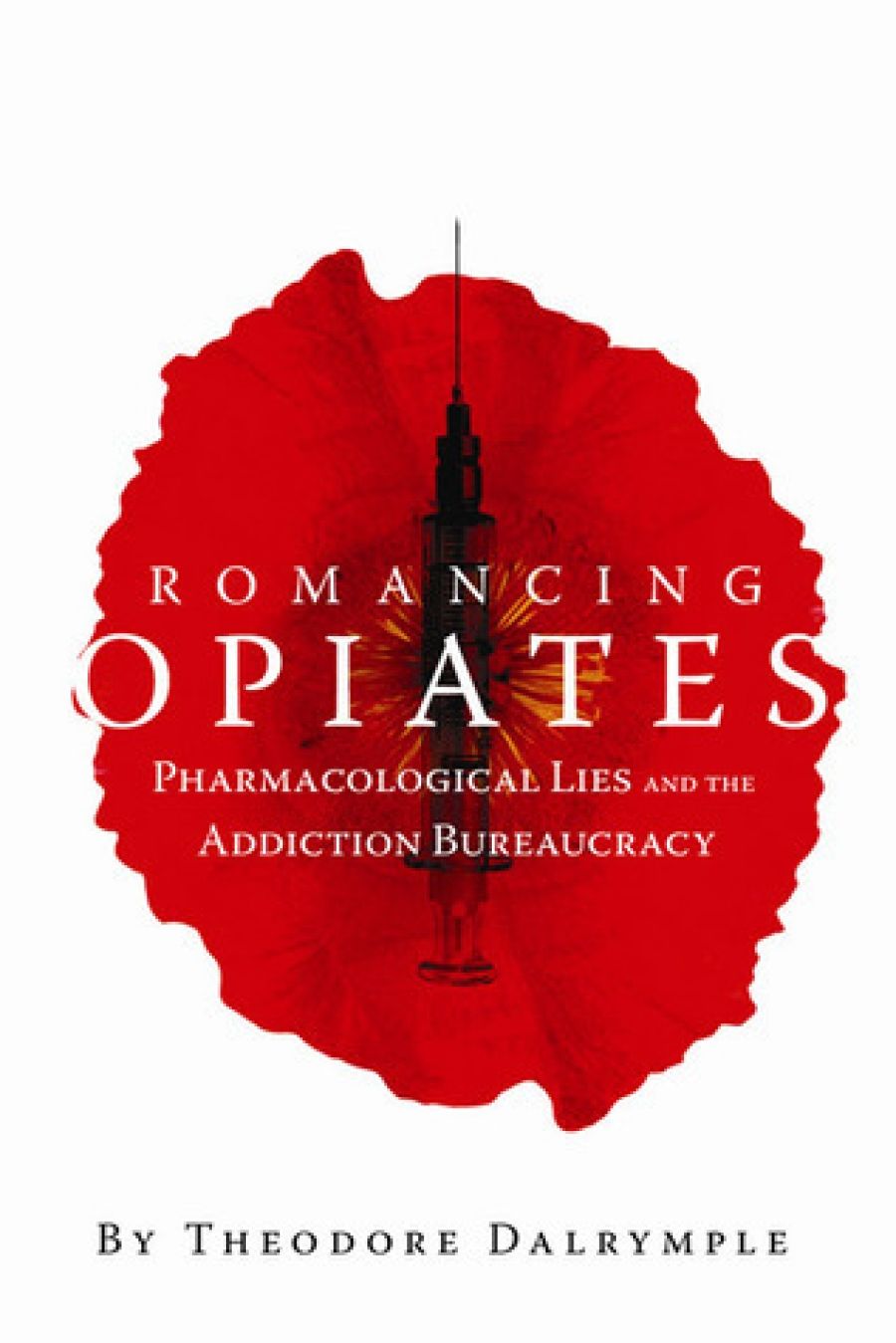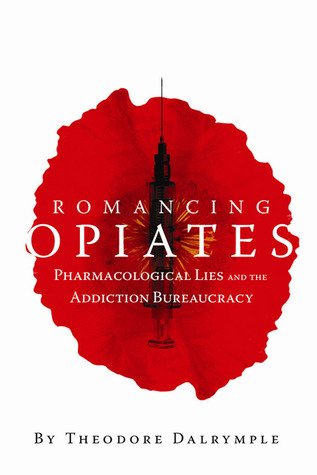
- Free Article: No
- Contents Category: Non-fiction
- Review Article: Yes
- Online Only: No
- Custom Highlight Text:
Theodore Dalrymple’s latest book, Romancing Opiates, slams societal and professional attitudes to heroin addiction. Dalrymple argues that heroin users are not blameless patients, as the medical fraternity would have us believe. ln fact, he tells us, heroin users have to work quite hard to get addicted; withdrawal is about as difficult as the flu; and the support industry, which he calls the ‘addiction bureaucracy’, is ineffective and self-serving. Dalrymple contends that the heroin epidemic cannot be dealt with until it is recognised as a moral and spiritual problem rather than solely as a medical one.
- Book 1 Title: Romancing Opiates
- Book 1 Subtitle: Pharmacological lies and the addiction bureaucracy
- Book 1 Biblio: Encounter Books, $38.50 hb, 146 pp
- Book 1 Cover Small (400 x 600):

- Book 1 Cover (800 x 1200):

To argue against the ‘standard view’ of the heroin user – that a person falls victim to the violent clutches of addiction almost immediately after their first encounter with the drug – Dalrymple uses a mixture of anecdotal and scientific studies, sometimes convincingly, at other times to dubious effect, claiming that the medical fraternity, politicians, and the public give preference to the addict’s claim to victimhood despite overwhelming evidence to the contrary.
If this is true, why do we perpetuate these myths? One reason Dalrymple posits is that doctors wish to avoid ‘timeconsuming and emotionally-exhausting’ conflicts with addicts. More sinister is Dalrymple’s suggestion that ‘where suffering exists it is necessary to employ doctors, nurses, psychologists, social workers, counsellors to relieve it’.
Dalrymple could have made this book a shorter and more measured distinction between the physiological and psychological aspects of heroin addiction, and the problems with current treatment. Instead, it rages against the deficiencies of the status quo, generalising addicts as spoilt children and doctors as indifferent and quick to prescribe. It is a pity that a call for a more holistic approach to the treatment of heroin addiction is eclipsed by a sense of frustration and anger that borders on sensationalism.


Comments powered by CComment